Last week we announced that Carrie Lofty’s STARLIGHT (THE CHRISTIES) is our Romance of the Week and the sponsor of thousands of great bargains in the Romance category: over 200 free titles, over 600 quality 99-centers, and thousands more that you can read for free through the Kindle Lending Library if you have Amazon Prime!
Now we’re back to offer our weekly free Romance excerpt, and if you aren’t among those who have downloaded this one already, you’re in for a treat!
Starlight (The Christies)
by Carrie Lofty
And here, for your reading pleasure, is our free excerpt of STARLIGHT (THE CHRISTIES):
Prologue
New York City
November 1880
Alexander Christie slumped into a supple leather armchair. With that artless collapse, his elbow struck a stack of papers on the nearby desk. A dozen star maps dumped onto the floor. Almost dispassionately, he watched them fall and scatter. He had intended to work upon returning from the will reading at his late father’s brownstone mansion, but even the most engaging astronomical puzzles would not capture his attention now. The drama of the long afternoon made higher thought impossible.
Sir William Christie had been dead for three weeks, his stout brawn laid low by months of crippling pneumonia. Yet his influence, even from beyond the grave, remained undeniable.
“Glasgow,” Alex said aloud, as if testing the word—the very idea of it.
From the other room came the sounds of a baby’s cry. Alex looked up, his neck aching and stiff against that sudden movement. On a burst of restless energy, he shoved up from the decadent chair and crossed to the larger of the suite’s two bedrooms.
“Is anything the matter?” he asked Edmund’s nurse.
“No, sir.” Betsy, a quiet Irish widow with two grown children of her own, glanced at him from where she stood over Edmund’s bassinet. “Just a touch fussy this evening. But better than he has been, the poor little mite.”
Still so small, so fragile. Delivered four weeks early, Edmund had been beset with health problems since the birth that had taken his mother. This recent bout with the croup was only just relenting.
Alex wondered if fatherhood would ever get easier. The edge of fear that cut under his skin never dulled.
He walked to the bassinet. Betsy had swaddled Edmund in a length of pale green cloth, concealing his arms and legs in the tucked-in way that seemed to offer him comfort.
“I’m sure you could hold him, if you like,” Betsy said softly.
Another slice of fear. Five months on and Alex still found no surety. No confidence in his abilities. The prospect of doing something wrong pushed like bricks against his chest.
“No. The boy needs his rest. We’ll be traveling on with my brother and sisters to Newport tomorrow midday. You’ll all be ready by then?”
“I’ll make sure of it, sir. Esther is just down to fetch supper for us both,” she said, referring to Edmund’s young wet nurse.
“Good.”
Betsy could not travel to Scotland. A trip into New York or to his father’s palatial summer home in Newport was one thing. Prying her away from her families in Philadelphia was quite another, although Esther had family in London. He would not ask such sacrifices of either woman, even if he were of a mind to consider Sir William’s ridiculous challenge.
No matter his internal strife, Alex could not resist touching the silken down of Edmund’s dark, wispy hair. He knew that texture and he knew that precious scent.
Throat tight, he pulled back before he truly woke his infant son. Then there would be no rest for anyone.
“I shall retire,” he said to Betsy. “Awaken me if you require assistance.”
The nurse nodded and resumed her place in a nearby rocking chair, where a tangle of colored yarn spilled out of a carpetbag. Within seconds she had returned to her knitting. Alex nodded once, offering the approval she obviously did not need, and left the pair in peace.
He poured a slight drop of whiskey and retrieved the leather portfolio he’d brought back from the reading. As if doing so might change the contents, he unfurled his copy of the will.
“Alexander David Christie, son of Sir William Christie and the late Mrs. Susannah Burgess Christie, shall assume management of Christie Textiles in Glasgow, Scotland, for the period of two years. The demonstration of a profit at the end of that tenure will result in the award of a one-million-dollar bonus. Failure to do so will nullify any additional financial bequests beyond a single payment of 500 dollars.”
Rubbing the back of his neck, he saw the machination for what it was—his father’s petty revenge.
Of Sir William’s four offspring, only Viv had deigned follow in his footsteps as a pioneering entrepreneur, and even her acumen had been constrained by her marriage into the aristocracy. Now they all faced the individual choice of whether to play one last game of chicken with the old man’s ego.
Alex was having none of it.
His life and his teaching position were in Pennsylvania, where he was due to be granted tenure within the year. A textile mill in the heart of Glasgow’s industrial district was someone else’s responsibility.
He and Edmund would be fine.
Nevertheless, he dug through his attaché of personal belongings and found a picture of Mamie. She had been so young then, her hair severe and her eyes perpetually worried. But for the daguerreotype, she had managed a patient, nearly defiant expression of calm. Alex traced a thumb across that hard-fought smile. The guilt of her death remained difficult to bear.
What would you want?
The words formed on his tongue, but he was not the type of man to ask his dead wife for advice. She had always been so careful in her replies, often coaxing the solution out of him with a few quiet words. Knowing from the outset that no reply would ever come kept him silent.
A knock at the door roused him from his dolor.
He shoved the photograph and the will into his attaché, and then smoothed the lapels of his ink-black suit coat. A second knock sounded before he crossed the suite.
“Yes?”
Dressed in the hotel’s rather pretentious green-and-gold uniform, a young bellboy held out a slip of paper. “Message for you, Mr. Christie, sir.”
Alex opened the brief note. Ice laced his veins, freezing him out to the skin.
“Sir? He’s downstairs in the reception room, sir. Awaiting your reply.”
“Tell him I’m be down presently.”
The bellboy pocketed a coin and disappeared down the corridor. Alex only stood in the doorway.
As the nearest gas fixture softly hissed behind a glazed sconce, he reread that single line of writing: “Did he bequeath you enough to keep your son?”
Alex crossed to the fireplace in the living area and knelt before its trivial flames. The petty satisfaction he found in burning his father-in-law’s taunt did not last long. Anger—a pure, blinding rage—was quick to screech back to life. As it always did. Hands bunched into fists, he ground his knuckles against the hearth’s neat spread of marbled stone.
Josiah Todd deserved those fists in his face. Repeatedly. Until the man suffered as much as he had made Mamie endure. Until he begged for the forgiveness it was too late to offer his dead daughter.
Alex looked in on Betsy, who had fallen asleep in her chair. He penned a note rather than disturb her, leaving it on the message table. After appraising his appearance in a nearby mirror, he ventured into the empty corridor. At that hour, most of the hotel’s patrons would be dining or taking in the city’s many attractions. The Grand Central was a place for the very rich and the very influential. The stipulations of Sir William’s will meant that Alex was no longer either.
In the future, he would be better served by simpler accommodations.
But Josiah Todd blended in with that opulence and wealth.
In the reception room, he sat on a bench padded with colorful brocade upholstery. Ankles crossed, his face was buried in the evening edition. A full head of silver hair glinted beneath the light of a massive crystal chandelier. The smokestack trail of his ivory pipe circled up toward a ceiling replete with white and gilt crown moldings. A familiar gold signet ring glittered on his right middle finger. Mamie had hidden the matching burn mark on her inner ankle for two years before finally admitting its existence to Alex.
“What are you doing here, Mr. Todd?”
“Alex.” The newspaper folded into itself, revealing a wiry mustache and muttonchops to match his silver hair. “Won’t you have a seat?”
“No, I don’t think so.”
“You Christies so enjoy being bombastic.”
Spine soldered, Alex kept his expression calm. Letting Josiah Todd see proof of how he riled an opponent was the quickest way to lose to the man. Mamie had never quite mastered the trick of letting his words slide over her, around her, past her. They had hit her square every time, smashing whole chunks of her soul.
“You have me confused with my father, I’m sure.”
Alex clasped his hands behind his back. He dug his thumbnail into the meat of his palm. Any tension he felt would find expression there, out of sight. “Now, if you please. The evening grows late and I have no intention of humoring you much longer.”
Mr. Todd stood with grandiose slowness. His paunch sat heavily at his waistline, concealed only marginally by the cut of his very expensive suit. Bright green eyes shone like the hard shell of a beetle. They briefly narrowed beneath his shiny silver brows before he once again found that ingrained hauteur. “You speak rather sharply for a man who only just learned he will inherit nothing.”
Surprise registered in Alex’s body as a slight tremor, like remembering the impact of a punch rather than receiving one. His prominent father-in-law, a direct descendent of one the framers of the Constitution, had always been clever. Cronies and spies lived for his next dictate, greedy for how well he paid. That he might have learned the contents of the will, even before its divulgence to Alex and his siblings, came as no great shock.
“Mr. Todd, rest assured that I would speak to you just as bluntly, no matter the details of my father’s estate.”
“Ah, so nothing has changed. My daughter dies and you remain as arrogant as ever.”
“She stopped being yours the moment she married me.”
“Then she’s in a better place now.”
Alex dug his thumbnail deeper. “You are repellent, sir.”
“What I am is of no concern to you, but could mean a great deal to my grandson.”
The ice that had lined Alex’s veins tightened until no blood pumped to his heart. Edmund was Josiah Todd’s only surviving grandchild. Mamie’s younger sister had been unable to conceive before her husband convinced a crooked bishop to annul their marriage, and their brother had died of cholera just before his eighteenth birthday.
Mr. Todd handed over an envelope. “This is notice from my attorney and from Judge Keller of Portsmouth that, from now on, I am to share custody of Edmund.”
“Like hell.”
“Such language. And Mamie always claimed you were a gentleman.” With lifted brows, Mr. Todd regarded Alex as if looking upon a pile of rotting garbage. The feeling was mutual. “But perhaps that gutter talk is unavoidable considering your . . . lineage.”
Alex ignored the insult and quickly gathered the gist of the legal summons. He couldn’t stop the faint tremble that made the thick legal parchment shake at its edges, a show of apprehension that Mr. Todd surely caught. The reaction couldn’t be helped. No matter that he’d likely been bought, Judge Keller made his interpretation of the law very clear. Edmund would be raised in Alex’s care, but significant decisions about his place of residence, education, and even a potential stepmother would be subject to Josiah Todd’s counsel.
“This is a farce,” Alex said with a sneer. “Whoever this Judge Keller is, he’ll be overruled by appeal.”
“Well, now, that is a worry.” But his tone and the slimy snake’s smile he wore said that Mr. Todd was not worried in the least. “Let me get this just right. You’re an astronomy teacher with no tenure, whose legendary father left you absolutely nothing.”
No. Not nothing.
Sir William Christie, who’d dragged himself up from the gutters of Glasgow, had given Alex a chance. In just that moment, the axis of his world tipped. The tremble in his fingers stilled, and his blood pumped with strong resolve. Forget games and forget old grudges. Dead in the ground, his father was hardly his enemy—not when faced with the rich, influential beast who had abused Mamie.
Alex would go to Scotland. He would earn that million-dollar bonus and protect his son. Or die trying.
“You will never see Edmund again,” he said. “Let alone possess the slimmest measure of control over his future.”
Their gazes locked. And held. Until Mr. Todd turned to tap his pipe in a marble ashtray—a subtle retreat that further strengthened Alex’s resolve.
“My boy, be reasonable. Do you really believe you have the clout to contend with me? Or the financial means?”
“I will, Mr. Todd. I guarantee it.”
One
Glasgow
March 1881
Polly Gowan had never heard the sound of a cannon shell ripping open, but the blast that rocked the rear of the textile mill must have been a small taste of combat. The south wall caved inward under the explosion. A blinding plume of smoke and debris slammed toward the looms below. Three giant machines disappeared in the wake of that chaos of powdered brick. Shocked, screaming workers stumbled and ran in all directions, as flames licked their heels.
Eyes wide, taking in every horrifying detail, Polly didn’t move. Her hands were still poised above the warp and weft of her own loom, the threads tangling from her lack of attention. She should move. Her thundering heart demanded flight. But she was consumed by one nauseating thought—one thought that meant the end of peace and safety for her people. And her family.
Tommy had gone through with his threat.
She held her aching stomach. The lightning quick slam of that hideous realization gripped her hard, but not for long.
She kicked off the firing mechanism that powered the loom’s arms and pulleys. It was instinct; if the place didn’t burn to the ground, she might at least be able to salvage her work. Then she grabbed the hands of the nearest two little sweepers, Ellen and Kitty. They were sisters of only eight and ten, both as redheaded as Polly.
At the next loom, Agnes Doward did the same with nearby apprentices. Together they gathered the children who worked the mill, most of whom had been scared into paralysis or equally useless screams.
“Come on now, lassies,” Polly shouted over the din. The harried calls of the other workers competed with the burn and crash. “Out we go. Out into the street. The fire brigade will be here in a wink.”
She doubted her own words. The fire brigade might eventually hurry to the scene, but only once they learned which building blazed. The chiefs knew how furious the mill masters would be if the factories were destroyed. The rest of Calton was simply not a priority.
“Polly,” Agnes called.
Looking back to where Agnes had nodded, Polly saw that a hole the size of a horse had opened in the south wall. Its near-circular shape was visible now that some of the dust had settled. Flames still crawled over the wool stores. Male workers did their best with water from an outside pump, working a chain of buckets and swatting the fires with overcoats.
What in the bloody hell had Tommy been thinking?
She tugged the girls’ hands a little too roughly. She’d sort out the culprit later, feeding him to the families of whoever came away from this sabotage with injuries. There were bound to be some. The explosion had been too large to leave everyone unscathed.
The crush toward the front and side exits was sizable and frenzied. Polly handed Ellen and Kitty to another worker, Constance Nells, and elbowed her way past a half dozen people. She hoisted her skirts and climbed atop two crates, an advantage of height made her feel as brave as she needed to be.
The panic wanting to break free would just have to wait. She needed to keep calm and set an example for the others.
If the factory burned . . .
Cupping her hands over her mouth, she shouted at the top of her lungs—which her ma had always said were the equal of a booming dockworker’s twice her size. That was not exactly flattering, but her strong voice was most useful today.
“Everyone, listen up!” For emphasis, she shouted it again in the Lowland Scots dialect they all shared. “Keep panicking if you want to burn alive. Whoever did this will win the day. They’ll be glad for it, knowing we reacted like animals. I, for one, would rather breathe clean air again. Now, you’ll bloody well calm down, keep care of the young ones, and behave like the Calton survivors you are!” She hooked a thumb back toward those who worked to quench the flames. “And men, if you have any meat between your legs, you’ll help save our livelihoods!”
For the span of a breath, there was no human sound. She had silenced them all. Nods and strong words of agreement followed. And, to her astonished pride, the seventy workers at Christie Textiles found their civilized minds. The men hurried back to help the efforts against the fire. The women hoisted children onto their shoulders and gripped their small fingers. Doors parted under the push of unseen hands, letting in a stream of misty spring sunshine. The smoke sucked out into the street, and Polly could taste the coming rain.
Two hands reached up to help her down from the crates. It was Les MacNider, a tall, skinny firebrand who talked as well as any professor—but only on the topic of workers’ rights and the oppression of their people. Otherwise he was just as likely as any man to grunt vague replies and talk sport, gambling, and women. He was a loyal friend.
Polly accepted his aid in descending. “It was Tommy,” she whispered.
Les shook his head. Although he was only in his late thirties, he was mostly bald. “I won’t believe it. Not of Tommy.”
“There’s no time. Go help the other men. I’ll make sense of whatever awaits us out in the street.”
Les nodded again and added a grunt of agreement. He worked his lanky frame back through the factory to take up a position in the line of buckets.
In the distance, the clang of the fire brigade’s bells offered some relief, bringing with it a familiar flare of indignation. Polly wondered how quickly they responded to emergencies in Blythswood Hill. But she didn’t indulge in bitterness. That way lay melancholy and a dependence on strong drink.
Or, in Tommy’s case, a yearning for violence.
She rushed out after the last of the escaping workers. The streets were full of people, from both the Christie mill and across the street. Her fellow workers wore soot and ash like an actor’s face paint, while those from Winchester’s appeared curious and concerned. Every building on the street was vulnerable if the winds shifted. Already the scent of hot water and wet ashes permeated the air.
Maybe they had a chance. The fire brigade had taken position in the alley, back near the stables and where deliveries of wool were stored. Whoever had planned the attack knew the establishment’s weakest place, right where the equivalent of dry tinder waited to erupt with the smallest spark—let alone actual explosives.
Rough hands grabbed Polly from behind. She yelped. Reflex helped her fight, but the hands were strong, implacable.
“You think you’re unstoppable, don’t you, Polly?”
A shudder ripped across her upper back. She stopped fighting, if only to process her shock.
Although his sneak attack had been a surprise, Rand Livingstone never failed to single her out as a scapegoat. Winchester’s overseer held a grudge against her as deep as the River Clyde. That she’d nearly made him a falsetto for the rest of his life had something to do with it.
The shock passed, and she fought. Tooth and claw had nothing on a Calton girl in the grips of unspeakable anger. He was a reptile. Positively inhuman. A factory could burn to the ground, and he would rather enforce baseless accusations or grab at her breasts.
“Let me go, you pile of vomit.” She grunted and twisted in vain. Something in her shoulder gave way with a little pop. She cried out at the sharp pain. “Bloody let go!”
Livingstone held fast, and with all the men indoors, Polly could not rely on the scared, stunned women, who huddled to keep the children safe— especially the older lads who wanted a closer look at the blaze.
“You were warned,” he growled, giving her arm another painful jerk. “You and your lot. You know any hint of violence would mean no mercy.”
“As if any member of the Gowan family has ever advocated violence! Now, let me go. You’re not a pig in a uniform—just an overseer! You just want to maul me like a doxy.”
Leaning close, he breathed against her temple. “You’re little better, you uppity bitch.”
Polly had used the moment of stillness to recover her breath and to lull the dullard into slacking his grip. She twisted away, turned, and landed a hard punch to the underside of his chin. His head snapped back with a sick grunt.
Her satisfaction didn’t last long. Livingstone brought up his knee and slammed it into her stomach.
Polly dropped to the ground, gasping. “Evil son of a bitch,” she whispered.
By now other men had gathered, including two constables. They looked brutish and wan in the thin sunlight. Distantly she heard Connie shouting for help, calling men from inside the factory to come to Polly’s aid. She feared they wouldn’t be fast enough.
“Get the others we want,” Livingstone told his cohorts. “The usual: MacNider, Larnach, Nyman. Even that old woman. What’s her name?”
“Agnes Doward,” came a firm voice. Agnes stood just behind Livingstone. Polly, looking up from the pavement, wanted to wave her off. But her friend’s posture was resolute. She wore a shawl around her thin shoulders, and her disheveled hair flipped and twisted in the breeze. “That’s me.”
“At least one of you scum has good sense. Not eager for a beating, old woman?”
“Not exactly. Which is why I’ll refrain from saying anything more to you.”
Agnes’s age was completely indeterminate, a contradiction of smooth skin and gray hair. All Polly knew was that she had four grown children and had lost her only grandchild, a wee baby girl, to cholera during the previous autumn. Like many of the most active union members, she had little to lose.
Polly fought to her feet, supporting her stiff shoulder. She glared at Livingstone. “You won’t have this unjust right much longer,” she ground out, for him alone. “Look around. One day they’ll realize how powerful they are. Nothing you do will hold back that tide.”
He sneered. “They’re sheep, and you know it.”
His activities had attracted some attention, but as Polly glanced up and down the street, she silently admitted the truth. Most people didn’t want to get involved, especially against those two looming constables and their fierce truncheons. Fear created the inertia she had fought for years, and her father before her. Not that she blamed her fellow workers.
There was pain to be found in fighting the way of things. Pain and danger.
But most days she just wanted to shake them all, to rile them to action, to prove what they could accomplish if they held together. Wasn’t fighting worth making sure a gutless rat like Rand Livingstone no longer had the unchecked power to bully?
His hard-faced accomplices dragged two men out from the mill. Les, with his angular, spindly body, was easy enough to spot, as was Hamish Nyman’s flaming red hair and full beard.
“Where’s the other one?” Livingstone asked. “That young nuisance, Larnach.”
“Nowhere to be found, sir.” The nameless enforcer shoved Les along. “Even a few punches got nothing out of nobody. He didn’t show up for work.”
Polly’s heart sank. Tommy Larnach had been one of her father’s most loyal and trusted young allies, practically as much a son as were Heath and Wallace. Tommy’s limp was a testament to that day when, a decade earlier, at the mere age of fifteen, he’d taken a terrible beating so her father would be spared an unjust punishment.
Yes, Polly had more than one reason to hate Rand Livingstone.
And Tommy had been Polly’s first and only lover. To think him capable of this destruction added an extra layer of agony to the place where Livingstone had kicked. Had Tommy been in the mill, he would’ve had at least something of an alibi.
One brute crossed his bulky forearms. “To the police station, boss?”
“Oh, no. We got special orders from Winchester. He wants the new mill master to know their faces. It’s Christie’s property. His charges to press. But he needs to meet them first.” Livingstone glanced at the men in uniform. “Either of you got a problem with that?”
Neither objected.
Hatred curled in Polly’s gut. Once again, she and her kind were on their own. But she needed to stay calm despite the abuse of power—at least for now. Being the eldest child of Graham Gowan meant notoriety. His peaceful dedication to workers’ rights spanned three decades. Polly’s youth and gender would not protect her forever, especially if the masters discovered that she now served as her father’s right hand.
“Come on, then.” Livingstone prodded her in the lower back, always touching her more than was necessary. Little pinches and grabs reinforced what more humiliating damage he could do if the moment appeared.
Polly kept her eyes forward, her jaw fixed. “You remember that time I connected the toe of my boot with your bollocks?”
He growled and twisted her sore arm. The pain was worth it for his infuriated expression. “You pompous whore.”
She kept her voice pleasant. A real smile shaped her mouth. “Next time I won’t make that mistake. I’ll rip them clean off.”
“Shut up.”
He shoved her into the back of a police wagon. She was joined by five more suspects. Her tartan shawl offered little protection against the slinking late-winter cold. Once inside the wagon, seated on a hard, shallow bench, she huddled closer to Agnes. The older woman’s closed eyes silently proclaimed her boredom with this routine, even as ash still colored her hair.
“It gets a little tedious, being so popular,” said big, gruff Hamish.
“You just wish you got as much attention from one of the MacMaster sisters.”
“No, that’s the wish of a spindly know-it-all like you.” Hamish stroked his full beard. “I get my hands plenty full of the pretty lassies.”
Polly grinned. They could be unruly, thick-headed, bitter people, but they were her people. Even in the midst of this crisis, they found ways of holding the fear at bay. And they were loyal. Les, in particular, would lie down in front of a team of galloping draft horses if it meant protecting union secrets.
Holding her aching arm, she squinted through the bars of the wagon’s lone window, assessing the pewter sky. The temperature had dropped. Calton was hardly a pretty area on the most brilliant of days. In fact, the eventual sunshine of late spring and summer would only accentuate every crack in the tenement sandstone. But when licked by March’s drizzle and cold, the buildings stood as dark, hulking shadows amid the ghostly gray. No color.
Their only hope was what they made for themselves.
Livingstone’s aim gave her just the hope she’d needed. No one from the union had yet to meet the new master of Christie Textiles. Union committeemen collected information like birds building nests. What they had gathered about Alexander Christie did little to round out his image. Indeed, he was Sir William Christie’s eldest child, born to an English noblewoman who had died during his infancy. Raised in London for a time by his mother’s family, the boy eventually moved to New York City after Sir William remarried a Welsh commoner. Now he taught astronomy at an American university in a place called Philadelphia, and was widowed with one child.
But his personality, politics, and plans—even his appearance—were as opaque as the clouds. How could she strategize against someone she’d never met?
Now she would. Polly would know her enemy, just as she would discover the identity of the saboteur.
The wagon chugged to a stop. Livingstone jerked the double doors open, his hand on Polly’s upper arm faster than she could have imagined. She stumbled to the pavement, where flint-sharp ice crystals chapped her cheeks. Agnes emerged last, as Les helped her down—more of that gentlemanly behavior that seemed so out of place. It was just his way.
The office of Christie Textiles was a modest affair when compared to some of the masters’ grand places of business. Situated halfway down toward St. Enoch’s Square, the squat, four-story building resembled in shape the dull bricks used for its construction. Heavy overcast clouds leached the walls of their deep red. A modest sign hung over the front door.
“The sign’s been painted anew,” Polly said to Agnes.
“New master. It’s little Will Christie’s boy, come home.”
“Home.” Polly whipped off her headscarf with a sharp flick. The breeze played keep-away with loose strands of her hair, but she hardly cared. She was just too riled. “He was neither born nor raised here. If you expect to find familiarity in him, my friend, you’ll be hurt and disappointed.”
Agnes shook her head. “He’s got Calton’s blood in his veins, though. No denying.”
“I’ll give you that. But masters are masters. They’re never truly new.”
Alex wanted a break from the expense reports and informational pamphlets spread across his desk. Numbers of a distinctly commercial variety clogged his thoughts. There remained so much to learn. Not for the first time, he wondered how his father had successfully insinuated himself into so many varied businesses. Had he really learned each industry as thoroughly as Alex was trying to learn the textile trade? Or did enterprises eventually come to resemble one another, so that the commodity no longer mattered?
He shrugged out of his coat and tugged at his ascot, so cross that he finally yanked off the silken noose. No matter how well his father had managed, Alex was not a businessman. The only way he knew to approach a topic was to study it from the ground up to the limitless sky—an aim made more trying because of Edmund’s health. His minor illnesses and occasional fevers wore on Alex’s stores of patience. Esther, Edmund’s wet nurse, would leave in three weeks to join her extended family in London. He would need to find another woman to care for him. Soon.
The break he’d imagined was quiet and still, a moment to collect his frustrated thoughts. Instead, he endured the arrival of a police constable called Andrews and the mill’s overseer, Howard McCutcheon.
For ten minutes, Alex listened as the men related the events of the late morning. Each passing description stiffened his ligaments and fused his bones in a combination of distress and outrage. McCutcheon went first: an explosion, a fire, a complete work stoppage. The mill’s workers had spread out onto the streets or gone home. Some might even be in hospital with burns from fighting the blaze.
The constable’s words were even more alarming. Sabotage, he said. Union agitators.
Alex took a deep breath and glanced at the papers, charts, and figures littering his desk. The time for studying was over. If agitators threatened his business, he would go to war.
“You’re certain it was intentional? No accident of any kind?”
“Explosives were used, sir,” Constable Andrews said. “No accident at all.”
Alex slammed his fist against the desk and glared at the men until their gazes lowered. “I will not have my mill jeopardized and loyal employees endangered!” Only when he recognized his burst of temper did he force his voice to quiet. “What about suspects?”
With unkempt hair and his upper lip encumbered by a large mustache, Andrews did not fit Alex’s image of an efficient officer of the law. But the man’s posture and determined expression offered some comfort.
“My officers will bring in the usual collection of riffraff and union whips.”
“I’ll want to see them personally—the union people, I mean. Intimidation is not a strategy they will utilize to any good effect. I guarantee it.”
“Yes, sir,” said both in unison.
Alex almost did a double take. He was unused to men snapping to his commands with that combination of unease and obedience. Many had responded to his father in a similar fashion. Never to Alex. Yet he appreciated the moment for what it was: expedient, uncomplicated. He would get results.
A banging noise downstairs in the lobby caught Alex’s attention. “See what that’s about,” he told McCutcheon.
But by the time the overseer reached the door, a knock sounded from the other side.
“Who is it?” Alex shouted. A headache had burst across his brow. His factory. His chance at beating Josiah Todd and protecting his son—literally in flames. He would see the damage himself, if only to make granite out of his firm resolve.
“Constable Utley,” called a voice.
Andrews raised his brows, which were nearly as thick as his mustache. “See? My men.”
Alex was unconvinced, because Andrews appeared equally surprised. Something was not as it seemed. He resented the deception, but it was not his most pressing concern. He nodded to McCutcheon.
A tumble of people spilled into Alex’s office. The room was not exactly small. It was, in fact, larger than his father’s library in that distant New York mansion. But as it quickly filled with roughly a dozen people, the office became a noisy prison cell. Two? Maybe three constables? Plus men who looked like hired muscle, and a few ragged, thinner folk covered in ash. Factory workers?
Then . . . red hair. The exquisite red hair of a young lady who would barely stand as tall as Alex’s chest.
“Now that’s more like it,” Constable Andrews said. His mustache contorted into a sneer as he stared at the same woman. “Should’ve known we’d see you behind this. Mr. Christie, this is Polly Gowan. Graham Gowan’s girl. She’s the first I’d have personally dragged down to the station.”
Alex blinked. The redhead had a name as lyrical as her hair was remarkable. He found himself staring. Outright staring. His heartbeat was a steady hammering in his chest—not because of the anger he’d only just stoked, but from a rush of sensual awareness.
Before he could remember his mind, his manners, his office full of strangers, he strode toward the little woman. Standing over her made him feel like a towering giant, powerful and strong. That feeling did not dim when she jerked up her chin. If anything, the blood in his heart raged even faster.
The shaky, eager way his body took note of her soap-fresh scent and trim waist was only going to complicate matters. Already he knew that he’d take thoughts of her to bed that evening. Pick over them. Analyze them. Relish them.
She wrenched her arm away from the brute who held her captive. But she didn’t run or flinch or weep. Her bright green gaze collided with his. She stared him down with as much force and certainty as any man. Alex fisted his hands against a rush of pure, primal excitement. Sudden combustion.
He had never felt its like.
That she was a suspect only added an edge of violence to his body’s dizzying response. “Who are you?” he snapped. His voice was so low and curt as to sound wholly unfamiliar. “And what the hell did you do to my mill?”

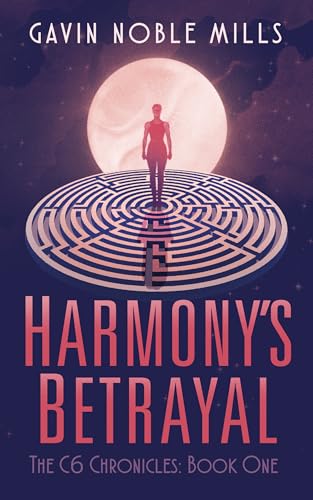
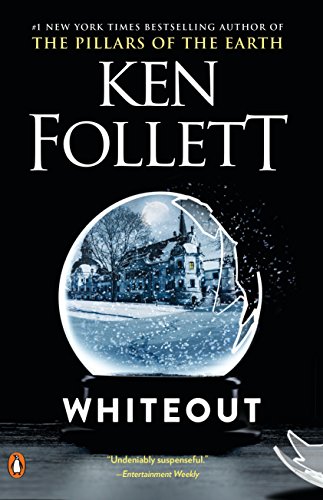


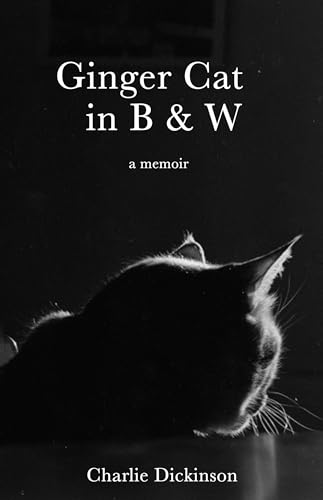

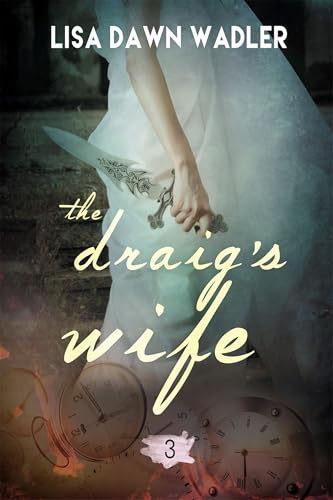


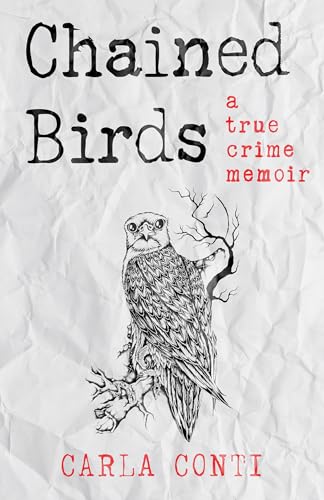

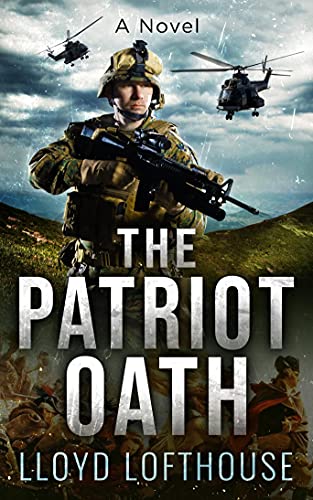



 Loading
Loading
